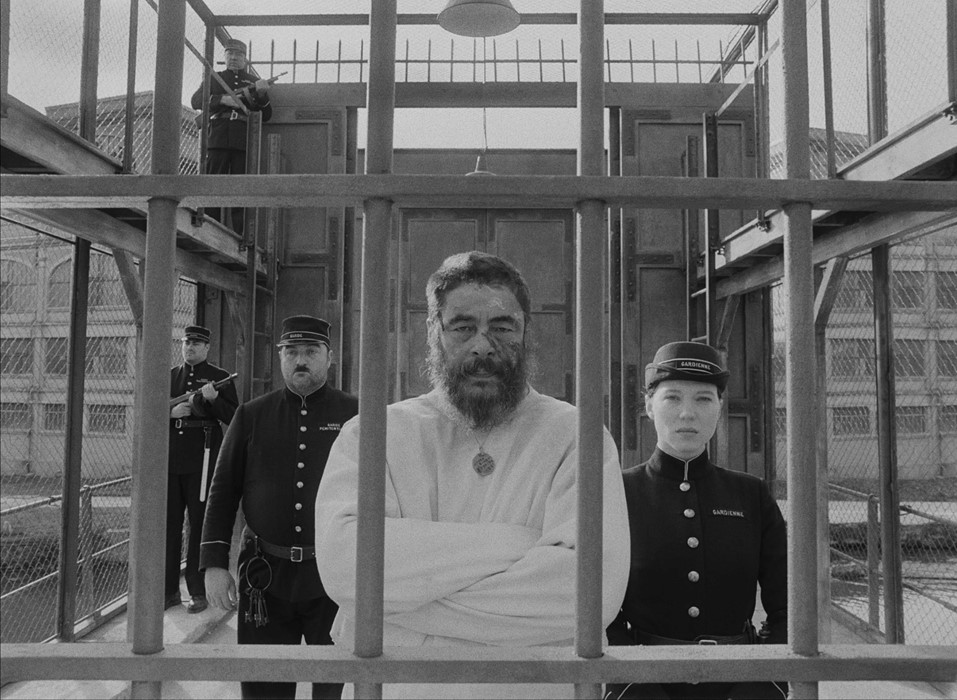
Wes Anderson is back with another meticulously crafted cinematic experience, The Phoenician Scheme, set to hit theaters in May 2025. The highly anticipated film boasts an impressive cast, including Benicio del Toro, Michael Cera, Tom Hanks, and Mia Threapleton, marking another entry in Anderson’s signature collection of whimsical yet thought-provoking films.
While Anderson’s films often feature vibrant cinematography, ensemble casts, and deeply stylized storytelling, The Phoenician Scheme appears to be his most ambitious project yet. Here, we dive into everything we know about Anderson’s latest film, from its plot and cast to its production details, stylistic inspirations, and what fans can expect.
Plot Overview: An Andersonian Mystery of Espionage and Betrayal
True to form, Anderson’s The Phoenician Scheme tells a story rich in character dynamics, dark humor, and intricate visual storytelling. Co-written by Anderson and Roman Coppola, the film explores a web of espionage, family conflict, and morally ambiguous choices, making it one of the director’s darker narratives.
At its core, The Phoenician Scheme follows Zsa-Zsa Korda (Benicio del Toro), one of the wealthiest and most enigmatic figures in Europe. As the head of a powerful multinational empire, Korda’s business extends into several industries, from art dealing and publishing to arms manufacturing. However, Korda’s complex relationship with his daughter, Sister Liesl (Mia Threapleton), forms the emotional backbone of the story.
Sister Liesl, a devout young woman who has taken vows as a nun, finds herself caught between her commitment to her faith and her estranged father’s backdropped world. As she struggles to reconcile her personal convictions with her family legacy, she is assigned a tutor, Bjorn Lund (Michael Cera), an eccentric yet deeply intelligent historian hired by Korda to “educate” his daughter about a secret inheritance that will change her life forever.
As Liesl’s journey unfolds, she stumbles upon a scheme involving espionage, coded manuscripts, and an organization with ties to a forgotten European dynasty. With the help of Prince Farouk (Riz Ahmed), a charismatic but morally dubious aristocrat, Liesl and Lund navigate a world where every action has unintended consequences. Meanwhile, Korda’s closest advisors—Uncle Nubar (Benedict Cumberbatch) and Reagan (Bryan Cranston)—work tirelessly to ensure the family empire stays intact, even if it means deception, betrayal, and unexpected violence.
The film promises to blend elements of historical intrigue, family drama, and Anderson’s signature blend of humor and melancholy. It is set against a lush European backdrop, filled with Anderson’s signature symmetry, bold color palettes, and intricate set designs.
Ensemble Cast: A Star-Studded Affair
As with any Wes Anderson film, The Phoenician Scheme brings together a remarkable ensemble cast, featuring both longtime collaborators and fresh faces.
• Benicio del Toro as Zsa-Zsa Korda – A powerful and enigmatic European businessman with ties to a secret espionage ring.
• Mia Threapleton as Sister Liesl – A young nun caught between her religious devotion and her family’s hidden legacy.
• Michael Cera as Bjorn Lund – Liesl’s peculiar but brilliant tutor, who unwittingly becomes involved in a world of secrets.
• Tom Hanks as Leland – A cryptic historian with knowledge of ancient manuscripts.
• Bryan Cranston as Reagan – A mysterious figure with connections to Korda’s empire.
• Riz Ahmed as Prince Farouk – A charming aristocrat with unclear motives.
• Benedict Cumberbatch as Uncle Nubar – Korda’s calculating and manipulative relative.
• Scarlett Johansson – In an undisclosed role.
• Bill Murray – Another Anderson regular with a yet-to-be-revealed role.
• Willem Dafoe – Potentially playing a shadowy antagonist.
• Jeffrey Wright, Richard Ayoade, Rupert Friend, Hope Davis, and Charlotte Gainsbourg round out the cast in supporting roles.
This film marks Michael Cera’s first collaboration with Anderson, a pairing that has excited many fans given Cera’s offbeat comedic timing and Anderson’s deadpan delivery style.
Production and Cinematic Style: A Classic Anderson Affair
Filming Locations and Production Timeline
Principal photography for The Phoenician Scheme began in March 2024 at the Babelsberg Studio in Germany, a historic location used for many acclaimed European productions. Anderson and his production team chose this location for its ability to replicate the film’s 1960s and 1970s European aesthetic.
Shooting continued until June 2024, with additional filming reportedly taking place in locations across Switzerland, Austria, and Prague, adding to the film’s rich historical and geographical backdrop. Fans can expect grand hotel interiors, vintage cars, and pastel-colored European streets, all signature elements of Anderson’s visual storytelling.
Cinematography and Score
Renowned cinematographer Bruno Delbonnel, known for his work on Amélie and Inside Llewyn Davis, collaborated with Anderson for the first time, replacing Robert Yeoman. Delbonnel’s signature use of deep contrast and warm lighting may offer a slightly different visual texture to the film while maintaining Anderson’s beloved aesthetic.
The film’s score is composed by Alexandre Desplat, marking his seventh collaboration with Anderson. Desplat, who won an Academy Award for The Grand Budapest Hotel, is expected to deliver a whimsical yet mysterious score that enhances the film’s espionage elements.
Themes and Inspirations: A New Direction for Anderson?
While The Phoenician Scheme maintains Anderson’s distinct style, early reports suggest it will be darker than his previous works, with stronger themes of betrayal, power struggles, and espionage.
Thematically, the film draws inspiration from:
• European Cold War-era thrillers, particularly works by Alfred Hitchcock and Fritz Lang.
• Classic espionage novels, such as John le Carré’s Tinker Tailor Soldier Spy.
• Historical dramas centered on aristocratic families, with shades of The Godfather Part II in its complex family dynamics.
While Anderson is known for his whimsical and often lighthearted storytelling, this film is rumored to delve deeper into themes of moral ambiguity, secrecy, and the weight of inherited power.
Distribution and Release Date
Focus Features acquired worldwide distribution rights, with Universal Pictures handling the film’s international rollout.
• Limited release (United States) – May 30, 2025.
• Wider release (International) – June 6, 2025.
This marks Anderson’s third film in partnership with Focus Features, following Moonrise Kingdom (2012) and Asteroid City (2023).
Fan Expectations and Early Buzz
With Anderson’s previous film Asteroid City grossing over $53.8 million worldwide and his Oscar-winning adaptation of Roald Dahl’s The Wonderful Story of Henry Sugar receiving critical acclaim, expectations for The Phoenician Scheme are high.
Critics anticipate:
• A return to a more structured narrative compared to The French Dispatch, which had an anthology format.
• Stronger character relationships, particularly between Del Toro’s and Threapleton’s characters.
• A blend of humor and drama, potentially placing the film alongside The Grand Budapest Hotel in terms of storytelling balance.
The film’s mix of espionage, family intrigue, and historical drama suggests that Anderson is exploring new territory while maintaining his unmistakable cinematic voice.
Impression
With its star-studded cast, intricate storytelling, and striking visual direction, The Phoenician Scheme has all the makings of another Wes Anderson classic. Its espionage-driven plot, combined with Anderson’s signature dry humor and stylized cinematography, promises an exciting and immersive experience for audiences.
As its May 2025 release approaches, fans eagerly await trailers, teasers, and further details about Anderson’s latest meticulously crafted world. Whether it will rank among his greatest films remains to be seen, but one thing is certain—The Phoenician Scheme is set to be one of the most talked-about films of the year.
No comments yet.








